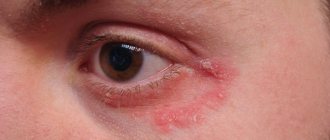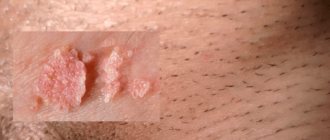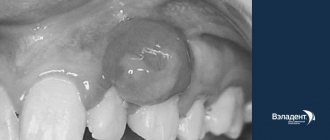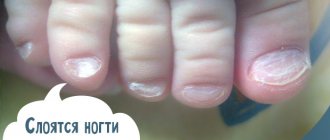An alternative to oral contraceptives are:
- Barrier contraceptives (condoms, vaginal rings, suppositories)
- Intrauterine devices, including those with hormonal effects.
- Hormonal patches.
- Injectable hormonal contraceptives.
- Sterilization.
EXPERIENCE OF USING COMBINED ORAL CONTRACEPTIVES IN ACNE THERAPY Rodochenko E. V., Berlizeva A. D., Kuzina Z. A. MLPHC “Consultative and Diagnostic Center”, Rostov-on-Don INTRODUCTION.
Recently, interest in the problem of psychosomatic disorders in patients with acne has sharply increased. According to domestic and foreign studies, it can be stated that about 85% of menstruating women experience premenstrual emotional symptoms, such as irritability, poor mood, anxiety and depression. In 3-8% of menstruating women, symptoms correspond to a more serious diagnosis - premenstrual dysphoric disorder (DSM - IV, USA), which is characterized by mood changes so pronounced as to lead to disturbances similar to those in patients with depressive or anxiety disorders. THE PURPOSE OF THE STUDY is to evaluate the effectiveness of combined oral contraceptives (COCs) with antiandrogenic activity in the treatment of acne as a manifestation of hyperandrogenism syndrome in women in order to normalize the emotional and physical state. MATERIAL AND METHODS. The observation included 52 patients aged 15 to 24 years, who presented with acne of mild severity - 34.6% (18) and moderate severity - 65.4% (34), with a high degree of emotional reaction. The duration of the disease ranged from 1 to 8 years. All patients were examined by an endocrinologist, gynecologist, and dermatologist to identify absolute and relative hyperandrogenism. The condition of the skin was assessed: location, number and type of rashes, hormonal blood tests on the 5th – 7th day of the menstrual cycle for sex hormones, thyroid hormones, ultrasound of the pelvic organs, examination of the psycho-emotional status (before and after treatment), premenstrual exacerbations. Based on the examination results, the patients were divided into three groups with small variations in endogenous estradiol fluctuations. In the first group, receiving Jess (3 mg of drospirenone and 20 mcg of ethinyl estradiol), 22 patients were observed. In the second group, which received Yarina (3 mg of drospirenone and 30 mcg of ethinyl estradiol), there were 20, in the third group, without COC drugs, there were 10. Adapalene gel, benzoyl peroxide, azelaic acid, and combination preparations containing antimicrobial drugs were used as external therapy and zinc, lotions with AHA acids, restoring and sebum-regulating creams from the La Roche Posay, Vichy, Bioderma, Uriage line. Inspections were carried out monthly. A comparison of the first and second groups was carried out on the effectiveness of the use of low-dose monophasic COCs containing a third-generation progestogen with antimineralocorticoid properties (drospirenone), devoid of metabolic effects. Monophasic COCs maintain a constant level of the estrogen component in the body, and drospirenone, which is part of both drugs, blocks androgen receptors and, having antimineralocorticoid properties, does not cause weight gain, which is especially important for patients in this age group. COC therapy was prescribed for 6 months continuously. RESULTS. During observation, in both groups receiving COCs, there was a decrease in skin greasiness, acne severity, and improved emotional and physical well-being. When using both drugs, there was no difference in the rate of acne disappearance. A rapid effect was observed in patients with mild acne in both groups. We noted that when COCs were discontinued and switched only to external therapy in the first group (Jess - 3 mg drospirenone and 20 mcg ethinyl estradiol), withdrawal syndrome (return of rashes within a month and the need to extend the course of therapy) was detected in 5 (9.6% ) patients, in the second (Yarina - 3 mg of drospirenone and 30 μg of ethinyl estradiol) - in 9 (17.3%). The number of eruptive elements in patients of the third group, who received only external treatment, decreased, but remained relatively high. The psycho-emotional state has improved slightly. Patients noted that when treatment is canceled (sometimes independently due to dissatisfaction with their appearance), the rashes reappear over the next 7–14 days. CONCLUSION. In women, in addition to external therapy, the use of low-dose monophasic combined oral contraceptive drugs with antiandrogenic activity is pathogenetically justified. In the treatment of mild and moderate forms of acne, the use of drugs with minimal ethinyl estradiol (20 mcg) is effective with good cycle control and tolerability profile. Low-dose monophasic COCs in combination treatment of acne are highly effective in the treatment of emotional and physical symptoms associated with PMS and PMDD, which allows achieving a greater level of comfort and satisfaction in patients than when using only external agents of therapy. Mild forms of acne also require the prescription of low-dose monophasic COCs, taking into account the high psycho-emotional demands of patients for their skin. ‹ Optimization of treatment methods for rosaceaUp Experience in treating patients with psoriasis ›
The most important thing in 4 phrases:
— The doctor should select a contraceptive based on the results of examination and tests at the moment when the need to take pills arose. Even if you took some pills, for example, before pregnancy, this does not mean that they will suit you after childbirth.
— There are relative and absolute contraindications for taking oral contraceptives.
- Do not tolerate side effects - this is a sign that the drug is not suitable for you. It will do more harm than good.
- Remember that oral contraceptives do not protect against STIs, so use them only with a regular partner who has passed all the tests.
Rumyantseva, md.
Acne is a chronic inflammatory disease of the sebaceous glands, known to most women as pimples.
The problem of acne affects not only teenagers. Thus, up to 22% of women over 25 years of age suffer from this disease.
Causes of acne
The reasons are varied, but the development of the disease is based on:
- hyperkeratosis (pathological thickening of the stratum corneum of the epidermis),
- proliferation of the bacterium Propionibacterium acnes,
- increased sebum production and
- inflammatory response as a reaction to all of the above.
A number of factors contribute to the appearance of acne:
- errors in diet,
- genetic predisposition,
- endocrine disorders (in particular, hyperandrogenism - increased production and/or activity of male sex hormones in women),
- and others.
Acne Treatment Options
There are a variety of treatment options, and most often a comprehensive approach is used. The main treatment options include:
- A variety of preparations applied to the skin (lotions/gels/creams/ointments/suspensions, etc.),
- Antibiotics,
- Hormonal drugs,
- Retinoids,
- Physical impact on areas of inflammation (laser/chemical peeling and other options),
- Alternative approaches (traditional medicine, hypnosis, etc.).
Hormonal drugs for the treatment of acne
Why do people increasingly turn to hormonal drugs when choosing a treatment method?
- Antibacterial therapy fails in approximately 80% of patients,
- approximately 30% of patients may experience acne recurrence after retinoid therapy,
- acne may be a symptom of some gynecological diseases (polycystic ovary syndrome, for example), requiring the use of hormonal drugs, and not an independent disease.
Considering that hyperandrogenism is one of the most important factors in the development of acne, it is logical to use drugs with an antiandrogenic effect (that is, drugs that reduce the level of androgens in the blood) to treat this disease. However, there is evidence that hormonal drugs are also effective in patients with initially normal levels of male hormones. Combined contraceptives (COCs) are included in the possible treatment regimens of the latest international guidelines for the treatment of acne (as part of complex therapy).
It is possible to use various hormonal drugs in the treatment of acne. In this article we will focus on the effects of COCs.
Many combined contraceptives can be used in the treatment of acne due to their ability to reduce the level of male sex hormones in the blood.
How is the antiandrogenic effect of COCs achieved?
- estrogen, which is part of the COC, stimulates the production of sex hormone-binding globulin in the liver, which, in turn, binds androgens, reducing the level of testosterone and dehydroepiandrosterone sulfate (DHEA-S);
- Estrogen, which is part of the COC, reduces the production of pituitary gonadotropins, as a result of which the production of androgens in the ovaries and adrenal glands decreases.
What is the principle of prescribing COCs for acne?
The possibility and necessity of prescribing COCs should be considered in the following situations:
- proven hyperandrogenism (increased levels of male sex hormones),
- late onset of acne (at 25 years and older),
- localized mainly in the lower jaw area,
- “wavy” course of acne, coinciding with the menstrual cycle,
- comedones + seborrhea,
- ineffectiveness of other approaches to acne treatment.
What should you consider when planning hormone therapy?
- Despite the variety of COC options, when compared with placebo, all COC options (third generation and beyond) demonstrate good efficacy in most patients;
- There are many options for COCs, but so far none of the modern drugs (third generation and beyond) have distinguished themselves in scientific studies as the most successful and the best for acne;
- To achieve the effect, the drug must be taken for 3-6 months (no less);
- The condition may worsen in the first months of use;
- A variety of side effects and adverse events are possible, so self-prescription of COCs is unacceptable;
- Symptoms may return after discontinuation of the drug.
It is important to remember that the first generations of COCs contained a progestin component with an androgenic effect, and therefore could aggravate the acne problem.
When choosing COCs for the treatment of acne, preference should be given to drugs with antiandrogenic effects.
Another interesting aspect: despite the variety of COCs that have demonstrated their effectiveness in the treatment of acne, only three drugs are approved by the FDA for the treatment of acne (i.e., acne treatment is indicated in the instructions based on the available evidence), and not all of these drugs are available in Russia.
Sources:
- Int J Womens Dermatol. Mar 2022; 3(1): 44–52. Published online 2017 Mar 30. doi: 10.1016/j.ijwd.2017.02.018 PMCID: PMC5419026 A Review of hormone-based therapies to treat adult acne vulgaris in women MK Trivedi, BS, BA,a,b,⁎ K. Shinkai, MD, PhD,a and JE Murase, MDa,c
- Guidelines of care for the management of acne vulgaris. Andrea L. Zaenglein, MD (Co-Chair),a Arun L. Pathy, MD (Co-Chair),b Bethanee J. Schlosser, MD, PhD,c Ali Alikhan, MD,d Hilary E. Baldwin, MD,e Diane S. Berson, MD,f,g Whitney P. Bowe, MD,e Emmy M. Graber, MD,h,i Julie C. Harper, MD,j Sewon Kang, MD,k Jonette E. Keri, MD, PhD ,l,m James J. Leyden, MD,n Rachel V. Reynolds, MD,o,p Nanette B. Silverberg, MD,q,r Linda F. Stein Gold, MD,s Megha M. Tollefson, MD,t Jonathan S. Weiss, MD,u Nancy C. Dolan, MD,c Andrew A. Sagan, MD,v Mackenzie Stern,c Kevin M. Boyer, MPH,w and Reva Bhushan, MA, PhDw. J AM ACAD DERMATOL MAY 2016.
Similar
Facebook comments
There is no need to be afraid - you need to know! Educational program about COC
Dobrokhotova Alina Danilovna
Obstetrician-gynecologist
March 27, 2020
Let’s skip the fundamental concepts about this group of contraceptives (they were described in the previous article) and move on to the essentials. What worries women most and most often when deciding on long-term use of oral contraceptives? Weight gain. But gynecologists are worried about thrombotic complications when using this method. We'll sort it out in order, reassuring you and us. Let's start with the fact that the balance of risk and benefit has been confirmed by a large number of studies, but still the word “hormones” still manages to instill fear in a woman.
Firstly, “terrible” estrogens reduce the concentration of cholesterol and reduce the content of atherogenic lipoproteins. Secondly, this is the 21st century, and now there are no high-dose combined oral contraceptives. Currently used drugs contain a small amount of those same estrogens and are metabolically neutral, i.e. your figure is safe.
Thirdly, if we are talking about thrombotic complications, then the risks (with proper selection of the drug) are no higher than with smoking, long flights, major operations and in the postpartum period. There is also a nocebo effect (occurs when a drug without pharmacological action causes a negative reaction in the patient).
There are several large groups of drugs, and depending on your complaints/established diagnosis/desired result, the gynecologist can choose the ideal option.
What is needed to prescribe COCs?
No tests for hormones. Yes! We do not need to know the baseline to prescribe oral contraceptives. And you need:
- Interview you. Carefully, meticulously, in detail and with passion! There are questionnaires for a more convenient conversation, but you can simply collect an anamnesis of your life and illnesses. Please, when you come to the doctor, trust him, tell him about the diseases you have suffered, the diagnoses you have received, the medications you are taking and your bad habits. We can only help if we see the full picture. You also need to measure your blood pressure (we are concerned not only about hypertensive conditions, but also about hypotension, i.e., a decrease in pressure).
- Inspect. This includes a gynecological examination in a chair and examination of the mammary glands (with ultrasound of the mammary glands for women under 35 years old or mammography if you are older).
- Prescribe a coagulogram (to assess blood clotting) and a biochemical blood test (the level of glucose, lipoproteins, cholesterol, bilirubin and liver enzymes is important).
Take a smear for oncocytology from the cervix and for examination for STIs.
Now to the main questions.
When and how should you start taking oral contraceptives?
Ideally, the onset should coincide with the first day of the menstrual cycle. You can also start taking it later (no later than the fifth day of the cycle!), but then over the next seven days you need to use an additional method of contraception (preferably a condom).
After an abortion? Reception immediately. Have you used a vaginal ring but changed your mind? They pulled it out and started taking combined oral contraceptives or also after a seven-day break. Did you use the injection method? On the day of the planned injection.
How long can you take the pills, and do you need a break?
Considering how far medicine has come, and the low (15 and 20 mg) dosages of ethinyl estradiol, you can start taking oral contraceptives simultaneously with the onset of sexual activity, and end with the onset of menopause. There is no need to take any contraceptive holidays! Breaks are needed for the onset and gestation of pregnancy, after which you can safely start taking it again. As for breaks “to rest the ovaries,” this is a misconception. The process of folliculogenesis does not stop due to blocking ovulation (the main effect of COCs). Moreover, please note: the greatest number of side effects of oral contraceptives occur in the first year of taking the drug! Especially when it comes to thrombosis. That is, by taking breaks, you reset your term and return to the risk group.
How to “quit” an appointment?
There are no smooth patterns. Have you decided it's time to have a baby? You finish the pack and don’t start again. You can get pregnant already in the next menstrual cycle - don’t waste time. The ovaries do not need time to recover, and the hormonal levels do not need to return to some kind of normal.
Do COCs protect ovarian reserve? Saving eggs?
No and no. We create an artificial menstrual cycle, during which follicles and eggs are also formed. I will say more, they also die in the same way as in ordinary life, if pregnancy does not occur.
Is irregular menstrual cycle treated with COCs?
Combined oral contraceptives do not cure anything, but they help manage symptoms.
Used for:
- severe forms of PMS (premenstrual syndrome),
- acne,
- prevention of functional ovarian cysts,
- PCOS (polycystic ovary syndrome),
- endometriosis,
- abnormal uterine bleeding,
- painful menstruation.
But this does not mean that COCs will cope with foci of endometriosis on organs or cure a polyp that leads to bleeding.
Do COCs cause cancer and other women's diseases?
No! Moreover, there is a proven oncological protective effect on the endometrium, ovaries and colon, and as a bonus there is a visible positive effect on appearance and quality of life.
Side effects of oral contraceptives
Now another side of the coin: side effects. It seems to me that in the annotation it is the COC that lists the largest number of possible “side effects”, including death, and there is a reason for this. What are the most popular unpleasant surprises that can await you?
- Weight gain. The most common question and fear of a woman. Weight fluctuations are usually minor (about 2-3 kg). If you have gained more, it is most likely due to an increase in appetite. Numerous studies have not found strong evidence that hormones are to blame (again, I repeat, dosages are now minimal and do not cause huge weight gains).
- Breast tenderness, nausea, headaches. These effects are temporary and are the body’s “adaptation” to what is happening. Most often, the above concerns you in the first three months of use. If troubles persist longer, consult your doctor; this can all be corrected by doses of hormones in the drug. By the way, you can get rid of nausea on your own by changing the time you take it and doing it strictly after eating.
- Changing your mood and attitude towards life. It also depends on the correct choice of contraceptive. Each woman tolerates taking the drug in her own way, which is why you should not self-medicate and use the advice “I take these COCs, so do you.”
- Decreased libido. Quite a common complaint. “I wanted to protect myself from an unwanted pregnancy, and not from sexual activity at all”... COCs reduce the level of testosterone in the blood, and it is this that is responsible for sexual desire. If the problem persists for more than three months of use, then you can reduce the level of ethinyl estradiol, replace the progestin component, or completely stop taking oral contraceptives in favor of a patch, IUD, or vaginal ring.
- Amenorrhea is the absence of a menstrual-like reaction after drinking a pack. This is the result of changes in the endometrium, which is the expected norm. It most often occurs when taking pills continuously, that is, you took them for 21 days and didn’t take a break (this scheme is also possible). First of all, pregnancy or a violation of taking pills is always excluded. If everything is fine, but neither you nor your doctor is happy with it, switching to higher dosages of estrogen may be recommended.
As you can see, “the devil is not as scary as he is painted.” With a competent approach, you can avoid the “harm” of oral contraceptives, get not only reliable contraception, but also improve your quality of life.
Trust the specialist you are contacting and describe your complaints and state of mind in detail!
Is there any harm from contraceptives?
What do birth control pills contain?
One of the most common and reliable methods of contraception are birth control pills, which do not pose a threat to the female body and solve many women’s problems. The harm of birth control pills is not as great as many women think.
Modern birth control pills contain a small amount of hormones with an almost 100 percent guarantee of protection against pregnancy. Estrogen and progestogen are the two main components of birth control pills. Their dosage and combinations in different chemical contraceptives are different. Therefore, it is necessary to correctly select the dose, as well as the time and frequency of use, so that the harm of birth control pills is minimal.
How do birth control pills work?
Combined birth control pills, firstly, prevent ovulation, and secondly, they make it difficult for sperm to enter the uterus, and also prevent the fertilized egg from attaching to the walls of the uterus.
There are monophasic and triphasic birth control pills. Monophasic drugs have the same composition regardless of the day of the cycle, while triphasic drugs have different hormone contents. Of course, the harm of these two classes of birth control pills is different. A special type of birth control pill is the mini-pill. They do not contain estrogen.
What harm can birth control pills cause?
Despite their positive effects, many women are afraid to take chemical contraceptives due to persistent myths about the harm birth control pills can cause.
There are several common myths about birth control pills that have no clear basis.
"Birth control pills cause rapid weight gain"
This myth is the most popular. The estrogen contained in birth control pills leads to the accumulation of fluids in the tissues, which increases body weight by 1-2 kg. However, these are not fatty deposits, but simply fluid in the tissues. As a result, cellulite may appear. This is the only possible harm of birth control pills in this situation.
“The use of birth control pills leads to cancer.”
In fact, many birth control pills prevent ovulation, which, on the contrary, reduces the risk of inflammatory processes.
"Birth control pills will cause acne"
Getting used to chemical contraceptives can lead to excessive oiliness on the face. This is a small harm in this case. If this does not go away, then you need to consult your doctor and change the drug. In addition, chemical contraceptives contain drospirenone, which eliminates skin problems. Usually, birth control pills have a positive effect on the skin, and pimples and acne go away.
“Long-term use of birth control pills can lead to infertility.”
Contraception does not affect a woman's ability to have children. It’s just that after finishing taking the drug, the woman’s body undergoes adaptation for several months.
“When taking birth control pills continuously, breaks are necessary.”
There is no need to pause. A break, on the contrary, can lead to an unwanted pregnancy, and the established cycle will be disrupted. Birth control pills can be taken for several years, even ten years, without any breaks.
- When taking chemical contraceptives, you must pay attention to the following:
- During the first three months of taking birth control pills, you may experience some discharge between periods.
- If you suddenly forget to take the drug, then take it as soon as you remember. Even if it turns out that you took 2 birth control pills a day. If you miss more than one day, there is a risk of getting pregnant. You still need to finish the package to the end, even if your period has already begun.
- Using antibiotics may reduce the effectiveness of birth control pills.
- If diarrhea begins within a few hours of taking the drug, you need to take another birth control pill.
- Birth control pills do not affect the health and development of the child.
Women over 35 years of age who also smoke are not recommended to take chemical contraceptives. There is a risk of blood clots, and in this case the harm of contraceptives can be fully manifested.











